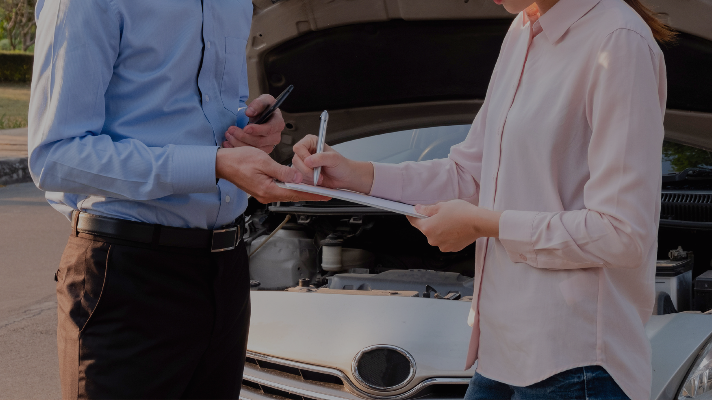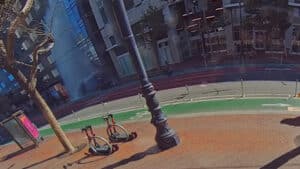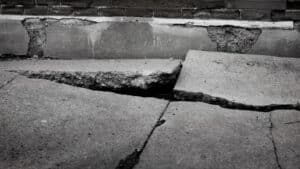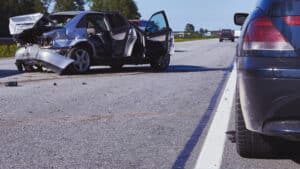Written By Megan Irish and Christopher B. Dolan
This week’s question comes from Kevin who asks: I recently witnessed a car crash where a truck ran a red light and hit a woman in a small SUV. The truck completely ran the red and hit the woman. She had the green light, and I saw that the pedestrians walking her way had 8 seconds on their count down. I stayed at the scene and gave the injured woman my contact information, but I couldn’t stay long because I had my little boy with me and did not want to stand on the street for long. I also told her I saw that the truck ran the red and hit her, but I wondered what else I could have done to help. What do you think is helpful to do when you see a car crash?
Dear Kevin,
Thanks for staying and telling the injured person what you saw. In terms of what you can do as a witness, there are many things. First, make sure you are safe to stop at the scene of a collision. If it is not safe, you can call 911 and report the crash and provide a statement about what you saw. You can describe where you were and what you observed. Sometimes the investigating officer will call you back and conduct complete interview about the collision. They will refer to you as a witness in the traffic collision report and summarize your statement to them in the report. Be honest and as straightforward as you can be. Provide any specific details you can. However, if you can stay at a scene and speak to the people involved, that is great too.
When you observe a collision, here are a few things to look for:
Look at where pedestrians are walking, and cyclists are riding. Can you see the traffic signal light, and if so, what color is it for whose direction of travel? Are there protected turn lights for left-hand turning vehicles, and if so, what color are they? Can you see the count down for pedestrians crossing the street? if so, on what number is it? Was the driver avoiding any hazards? If so, what is it, where did it come from, and where did it go? Was the hazard also involved in the collision? Where are the involved vehicles stopped? Can you note the license plates? Are the drivers involved staying at the scene or trying to leave? Do you have a camera on you? Can you safely take some photos? Or a video? If you can take pictures, try to capture the locations where the vehicles came to rest. Take photos of any debris that came off the cars, and any skid marks associated with the collision. Take pictures of the license plates of the vehicles involved in the crash, and the people who were driving the cars. If you have time and can capture the color of the light before it changes, that can be helpful too. Watch the traffic lights cycle through. Are there any problems with them, such as the same color showing for both directions at once? If that happens, then definitely try to get a video and bring it to the attention of the people involved in the collision, as they will need to try and get a video to provide to their insurance. Although this is a long list of things to remember to do, this information can be helpful when explaining who had the green and who had the red lights. If a person is badly injured, they may leave the scene in an ambulance, and they will not be able to relate what happened to the police. Any statements you provide can be helpful to the investigating officers and or insurance companies to understand how the collision occurred and who was at fault.
Liability
Determining who was at fault is crucial to establishing liability for a matter. Liability is the legal term for who is responsible for the collision and whose insurance company need to cover the costs of the repairs to the vehicles and the injury to the people. Liability is frequently ‘disputed,’ meaning insurance companies cannot determine who caused the collision. Therefore, they wait on making any payments until they can establish more evidence to prove one vehicle was responsible for the other. For instance, in the collision you observed, where one car ran the red light, it will be necessary for the person who had the green light to prove they had the green light to the other driver’s insurance. The parties typically dispute red light-green light cases, and an independent witness statement, such as your own, can be very helpful. The insurance companies will call you after a collision, and your statements will help the at-fault driver’s insurance take responsibility for the damages to the injured party.
It is significant that you stayed and relayed what you observed. Your statement was likely beneficial to the drivers involved and is appreciated by those involved in a collision.










